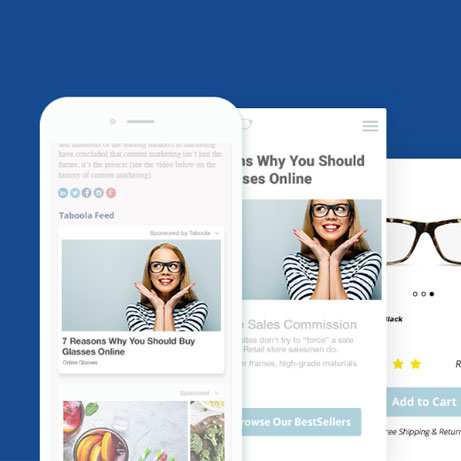Deliver Targeted Content Without Compromising Privacy

By Boaz Grinvald, CEO of BrightInfo
If you're like most B2B-focused marketers, you're tasked with generating more and more leads in a marketplace that's grown increasingly competitive. Companies generate lots of online content designed to engage website visitors (who, we're told, have shrinking attention spans). Not surprisingly, the result is often low content engagement and high bounce rates.
Personalizing the content changes all that. When you match and display the right content to the right visitor at the right time, the visitors are naturally more engaged. And we're in a better position than ever to make that happen: with the explosion of Big Data, increasingly sophisticated data gathering and analysis helps us better identify online prospects and speak directly to their personal needs.
Rob Brosnan, principal analyst at Forrester Research, has been on record as saying that personalization is quickly moving beyond traditional banner-based remarketing to inbound marketing for both the Web and multichannel environments.
The question is how can we realistically personalize data without knowing the potential customer? Some online visitors willingly trade personal information for Web services or content, and that's great for us. But others are simply unwilling to cede their anonymity.
At the same time, a natural tension exists between the desire to create marketing relevance and the need to adhere to international privacy laws and shield visitors from unwanted intrusion.
In the consumer world, Mozilla is working on a project that would make the browser a central repository for a list of user interests. Mozilla has publicly said that while many websites offer personalized experiences, users unknowingly trade their personal information for a better/customized experience. They suggest that instead of sharing an interest graph with lots of vendors online it could instead detect that information via a browsing history.
In the B2B arena, you don't necessarily need to know a visitor's hobbies and interests beyond what they need at the moment - the topic they seek, how they prefer to consume content (video vs. documentation vs. face-to-face engagement), and perhaps the angle they want (technical, financial, competitive, etc.).
Using machine-learning solutions or customized browsers, corporations can create a personalized experience without the need for users to uncover any personally identifying information initially. In fact, a remarkably accurate profile can be assembled from the visitor's content choices, navigation behavior, and what appealed to others with similar behaviors and interests.
With this approach to automated personalization, you can construct a useful picture of what the anonymous visitor wants, in real time, and serve up the right dynamic content. The visitor remains anonymous until he or she decides to convert and become a known lead. The relevant, useful and timely content you provide will ideally facilitate this process - but the choice to become "known" is the visitor's alone.
Dynamic content recommendation powered by machine learning provides the ideal balance between protecting visitor privacy and serving targeted, personalized content. Using these tools, visitors can get what they want from your site - without giving too much away.
Boaz Grinvald, CEO, BrightInfo
In his many years in B2B marketing, Mr. Grinvald was always looking for automated solutions to amplify marketing success without a huge investment. He served previously as founder and CEO of network emulation specialist Shunra and held management positions at NCC and RUN, where he was responsible for development, customer support and strategic partnerships.











